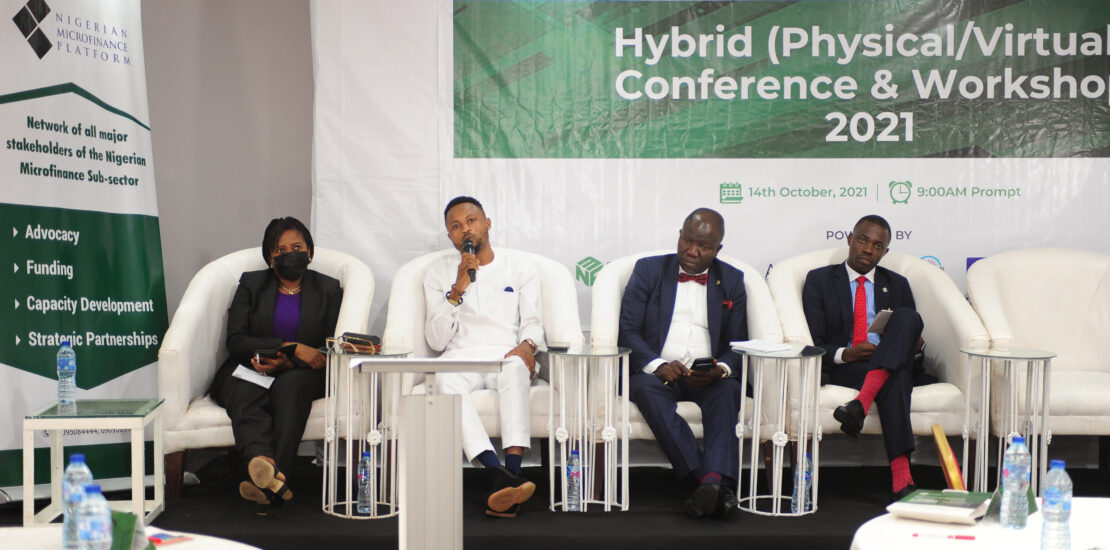- February 21, 2024
- Posted by: samlorlah
- Category: Uncategorized

In statistics compiled by the US Department of Labor’s International Child Labor and Forced Labor report for Nigeria in 2020, it was estimated that 77 percent of children ages 5-14 were attending school, 48 percent of children ages 5-14 were working, with 40 percent combining work and school. While Nigeria offers compulsory education up to the age of 15, children as young as 12 can legally work, which is lower than the ILO international labour standard of 15 years of age, ratified by Nigeria in 2002. While there are no official statistics for the incidence of child labor in Nigeria, they are suggestive of a high risk of child labor, particularly among poorer households and those working in the informal economy. The supply chains associated with cocoa, gold, granite, gravel, sand, and cassava are those documented for their exploitative labor practices that put children in harm’s way.
The UN has declared 2021 as the International Year for the Elimination of Child Labour (IYECL) which gives the opportunity to shift from commitments to action and respond to the alarming global situation published by ILO and UNICEF earlier this year. With support from the ILO, Nigeria Federal Ministry of Labour validated its National Policy on Child Labour and the National Action Plan for the Elimination of Child Labour (2021 – 2025), showing their commitment to set up a legal framework adapted to the local context that can separate child labour from child work. Through the Accelerating action for the elimination of child labour in supply chains in Africa (ACCEL AFRICA) project, ILO seeks to bring multiple sectors in Nigeria together–including the financial services sector–to combat child labor in the gold and cocoa supply chains. Through ACCEL Africa, the ILO plans to partner with interested financial service providers to develop financial services that address the root causes of child labor.
On October 14th, 2021, the Nigerian Microfinance Platform, in collaboration with the Reducing Incidence of Child labor and Harmful conditions of work in Economic Strengthening initiatives (RICHES) project, introduced a conference session to demonstrate how financial services actors, and specifically those supporting women’s enterprises, could integrate concerns of child labour and harmful work. Grameen Foundation, in partnership with the American Bar Association Rule of Law Initiative and with support from the U.S. Department of Labor, Bureau of International Labor Affairs, launched the RICHES project with the goal to support women’s enterprises responsibly and mitigate the risk that women resort to harmful child work and other negative coping strategies when they seek to start or grow a business. In attendance were 110 participants representing the United Kingdom, the United States, Ivory Coast, India, Ghana, Philippines, Ecuador and the Benin Republic.
During the presentation, Grameen Foundation laid out the minimum steps that all financial services providers can take to promote child protection:
- Being aware of the risks to doing harm when supporting small enterprises,
- Assessing the risks and identifying situations of harmful work for children and adults in their program portfolio,
- Committing to Do No Harm, and
- Knowing where to go for help.
The RICHES project, through consultations and input from key actors in Nigeria, such as the NMP and LAPO Microfinance Bank Ltd, designed tools (known as the RICHES Toolkit) to help achieve these steps, most of them aligned with social performance standards of practice. For those whose social mission takes them further, there are tools for taking a more comprehensive approach to child protection, such as market research, staff and client training to raise awareness about harmful work, financial services design considerations, and monitoring and evaluation. NMP and LAPO also pilot-tested some of the tools associated with the minimum steps noted above and found them to be relevant, actionable, and consistent with their missions. The figure below provides a snapshot of the tools available to assist FSPs interested in integrating child protection into their work.
Also present during the conference session panel, in addition to Grameen Foundation, NMP, and LAPO, were different leading voices from the ILO, the Other Financial Institutions Supervision Department (OFISD) of the Central Bank of Nigeria (CBN), Chartered Institute of Bankers Nigeria (CIBN), the National Association of Microfinance Banks (NAMB), Nigeria Deposit Insurance Corporation (NDIC). Representatives of these entities debated the relevance of child labor to the Nigerian financial services sector, discussed the relevance of the RICHES toolkit, and identified the need for more research to help develop a deeper understanding of the incidences and characteristics of child labor among those clients in the microfinance sector.
Given the relevance of the objectives of the RICHES project to the members of the NMP, the NMP secretariat identified the role that its Efficiency and Social Performance Working Group could play in discussing how the concept of child protection can be pursued in the coming year. To learn more about the working group or the RICHES toolkit, please contact Adetunji Afolabi at Afolabia@mldc-ng.com, NMP Efficiency & Social Performance Working Group.
Authors: Adetunji Afolabi and Oyerinmade Oladejo of NMP, Bobbi Gray and Amelia Kuklewicz of Grameen Foundation, and Edgar Aguilar of the International Labour Organization
